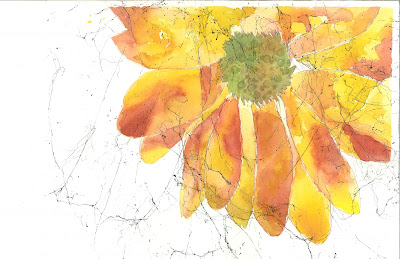Says Yair Caspir in an article published in HAARETZ, which focuses on this week's Torah portion:
"Joseph bears a severe trauma from his childhood. His brothers tried to kill him, his father did not protect him, and the brother who "showed compassion" for him sold him into slavery. His family had forgotten him.
Trauma...Post Traumatic Stress Disorder (PTSD) Complex Post Traumatic Stress Disorder.
https://traumapractice.co.uk/what-is-the-difference-between-ptsd-complex-ptsd/
| PTSD | Complex-PTSD |
|---|
| Sense of threat | Interpersonal disturbance |
Persistent avoidance of
thoughts, feelings,
people & places | Negative self-concept |
| Re-experiencing | Affect dysregulation |
Hyper-arousal
| Sense of threat |
| Avoidance |
| Re-experiencing |
Another great resource is the Adverse Childhood Experience (ACE) studies, which show that neglect in various forms can severely impact brain development, impacting emotions and behaviors. This family, indeed, has had the effects of neglect...
I've often wondered what it would have been like to grow up with one father, multiple wives, and half-siblings, all vying for attention and recognition...
What would the emotional climate have been like? Last week, we touched on generational trauma and shame being passed through via epigenetics. Left unaddressed, we unintentionally pass these conditions on to our offspring.
The betrayal and deceitfulness of Laban greatly impacted Jacob, leading to his marrying two sisters, one being barren, the other fertile, creating jealousy and rivalry. Add two more women who were powerless over their living situations, add children from all of these women, topped off by the favorite wife, finally giving birth to two sons. Wow, what a dysfunctional mess!
Betrayal, jealousy, favoritism, sibling rivalry, resentment, bitterness, lust, hatred, and more! All create a wounded heart.
What a setup for continued generational trauma! As we explore the continued journey of the 12 tribes of Isreal, we will dig deeper into the topic of trauma along with resources for healing and overcoming!)
According to Blue Letter Bible, the word trauma is as follows:
Thayer's Greek Lexicon: ͂trauma
1) a wound
Part of Speech: noun neuter
Relation: from the base of titrosko (to wound; akin to the base of G2352, G5147, G5149, etc.)
Did you catch that? Wound
(As we explore the continued journey of the 12 tribes of Isreal, we will dig deeper into the topic of trauma along with resources for healing and overcoming!)
We have been reading the weekly Torah portions, with baited breath at times, about Joseph's next move toward his vulnerable brothers.
Joseph tested them to see into their hearts. He wanted to see if they had repented, truly repented.
When Joseph saw that they had indeed had a change of heart, all those years of grief burst like an emotional dam...
After years of stuffed resentment, regret, and deep remorse came reunification and rededication to one another.
They truly did live happily ever after in the land of Goshen!
I would like to highlight some important steps Joseph took before trusting his brothers and revealing his identity.
In Genesis chapters 42-43, we read about the various ways he tested his brothers. This was a very wise decision.
As a domestic abuse survivor and a certified domestic abuse advocate, I cannot stress enough the importance of this critical step.
Lundy Bancroft is the author of "Why Does He Do That?". He is an expert in the field of domestic abuse. This book was recommended to me by a sister who understood what I was living with, along with the website and book called A Cry for Justice by Pastor Jeff Crippen. These resources saved my life.
https://lundybancroft.com/articles/checklist-for-assessing-change-in-men-who-abuse-women/
- Admitting fully to what he has done
- Stopping excuses
- Stopping all blaming of her
- Making amends
- Accepting responsibility (recognizing that abuse is a choice)
- Identifying patterns of controlling behavior, admitting their wrongness
- Identifying the attitudes that drive his abuse
- Accepting that overcoming abusiveness will be a decades-long process, not declaring himself cured
- Not starting to say, “so now it’s your turn to do your work”, not using change as a bargaining chip
- Not demanding credit for improvements he has made
- Not treating improvements as chips or vouchers to be spent on occasional acts of abuse (e.g. “I haven’t done anything like this in a long time, so why are you making such a big deal about it?”)
- Developing respectful, kind, supportive behaviors
- Carrying his weight
- Sharing power
- Changing how he is in highly heated conflicts
- Changing how he responds to his partner’s (or former partner’s) anger and grievances
- Changing his parenting
- Changing his treatment of her as a parent
- Changing his attitudes towards females in general
- Accepting the consequences of his actions (including not feeling sorry for himself about those consequences, and not blaming her or the children for them)
Repentance is a biblical term that describes the deep sorrow of recognizing our sin and wanting to turn away from it towards God. It involves a confession of wrongdoing - naming sin and recognizing responsibility for it. It also involves grief at our wrong behaviour, recognising the limits of our ability to make amends, and acknowledging its impact on our relationships with God and others. In addition to this, it involves a change of heart – deciding that the future will involve new plans, new ways of behaving, and acting on this. Repentance that does not lead to behaviour change is not repentance at all. “Godly sorrow” always produces a genuine concern to ensure that justice happens (2 Corinthians 7:10-11).
The article also states: Because repentance is a gift from God (Acts 11:18), it is also possible for perpetrators of domestic and family violence to repent. The Holy Spirit can convict them of their abusive attitudes and behaviors, and help them change. However, for repentance to be genuine it must involve honest confession, genuine attempts at restitution, willingness to being held accountable by church leaders, and sustained changes to their attitudes and behaviours.
Take from the website Safe Resource.
I pray, beloved, that this has blessed you. It is not an easy topic to delve into, but the body of Messiah must be healed and equipped to help others out of the snake pits of abuse, addiction, and traumas. As we continue to study the Torah, more insights and resources will be provided according to the will of the Most High.
Until next week, shalom!
Resources and articles
https://www.saferresource.org.au/the_bible_on_domestic_family_violence
https://www.domesticshelters.org/resources/risk-assessment-tools
http://www.abigails.org/a-studypage.htm
https://scholars.wlu.ca/cgi/viewcontent.cgi?article=2429&context=consensus































